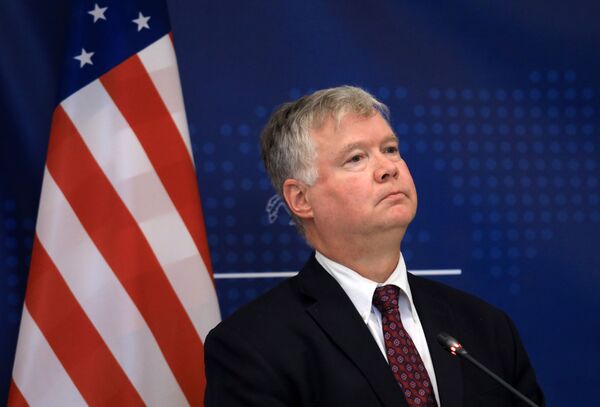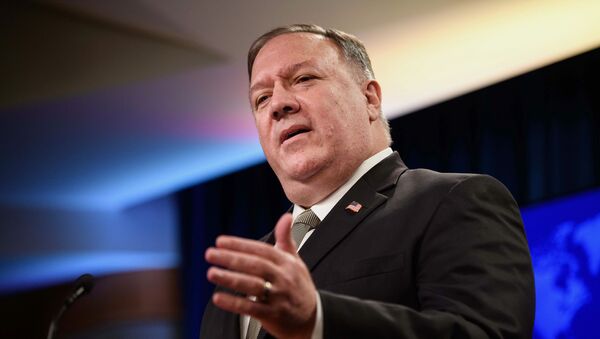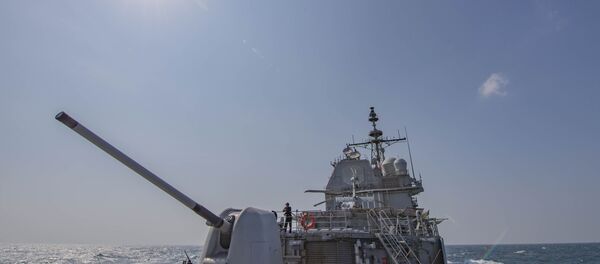Early next week, US Secretary of State Mike Pompeo and Defence Secretary Mark Esper will meet their Indian counterparts in New Delhi for strategic talks that "aim to reinforce President Donald Trump's anti-China campaign message", AP reports.
On Tuesday, Pompeo will sit down with Indian Prime Minister Narendra Modi and engage in the third annual US-India 2+2 Ministerial Dialogue with Secretary of Defence Mark Esper and Indian counterparts to discuss US-India bilateral trade and mutual areas of interest.
Earlier this week, the US Secretary of State told reporters that he was "sure" that the two sides would also discuss "how free nations can work together to thwart threats posed by the Chinese Communist Party".
He spoke after Deputy Secretary of State Stephen Biegun called China an "elephant in the room" during his visit to New Delhi on 12-14 October.

Biegun underscored that the White House is looking to promote India's interests in the region, build a free and open Indo-Pacific, and tackle risks posed by Chinese high-tech telecom networks.
The Deputy Secretary of State said that New Delhi and Washington have been "too cautious" in developing strategic linkages among themselves and other QUAD countries because of China, in a reference to an informal strategic forum of the US, India, Japan, and Australia, seen as a counterweight to China.
Biegun also stated during his speech that the US "certainly benefits" from a "strong and prosperous" India, voicing confidence that the two sides would continue to boost their partnership, regardless of the outcome of the US presidential election on 3 November.
The remarks followed the Chinese Embassy in Japan earlier this month accusing Pompeo of "fabricating lies" about China and "maliciously" creating a "political confrontation".
The embassy added China had always maintained that "multilateral cooperation should uphold the spirit of openness, tolerance and transparency" instead of "engaging in closed and exclusive 'small circles'".
The comments were preceded by Pompeo saying in an interview with NHK in Tokyo that a "forceful" response was needed against China and urged India, Japan, and Australia to form an alliance to counter what he described as Beijing's "coercive power".
US-Chinese Tensions
Pompeo's upcoming visit to India comes amid ongoing tensions between Washington and Beijing, which have flared in recent years over the South China Sea. Beijing claims the latter as its historical territory, and has been building military bases on artificial islands in the region.
In a separate development, the Trump administration launched a trade row with Beijing in 2018, leading to a major tech war after Huawei, ZTE, and over 70 Chinese tech companies were blacklisted in May of last year, with Washington citing alleged national security concerns.
Beijing and numerous Chinese tech giants, including Huawei Technologies, have routinely denied and condemned US accusations that their technologies spy on users on behalf of the Chinese government.






